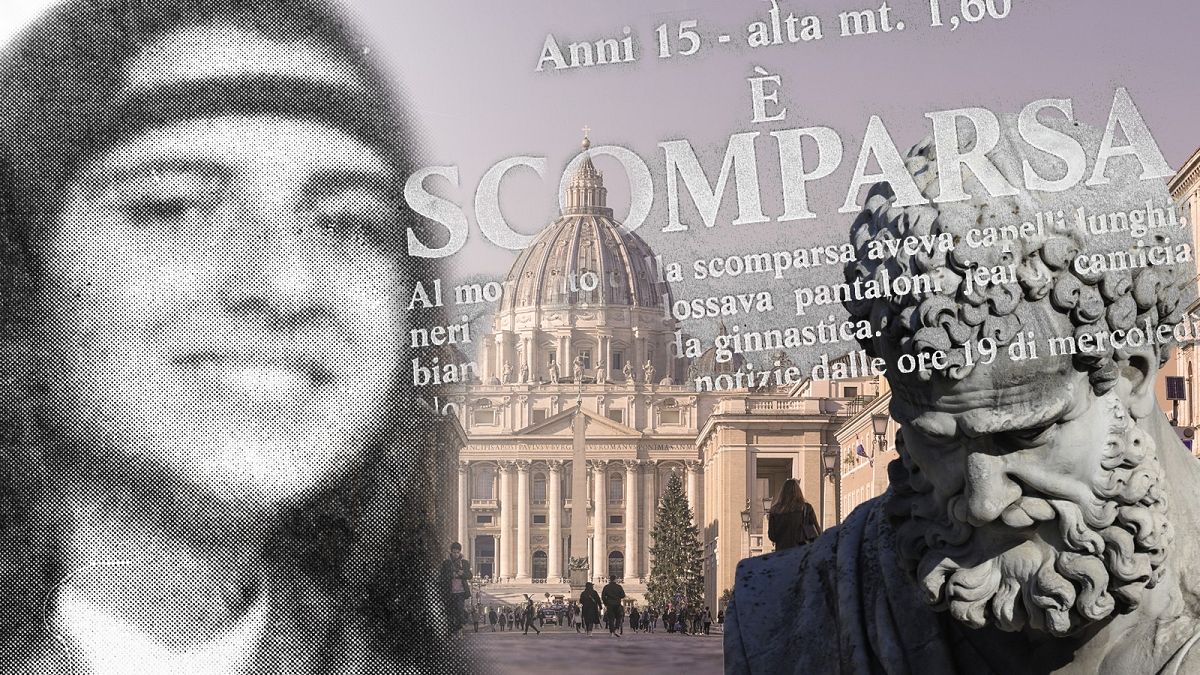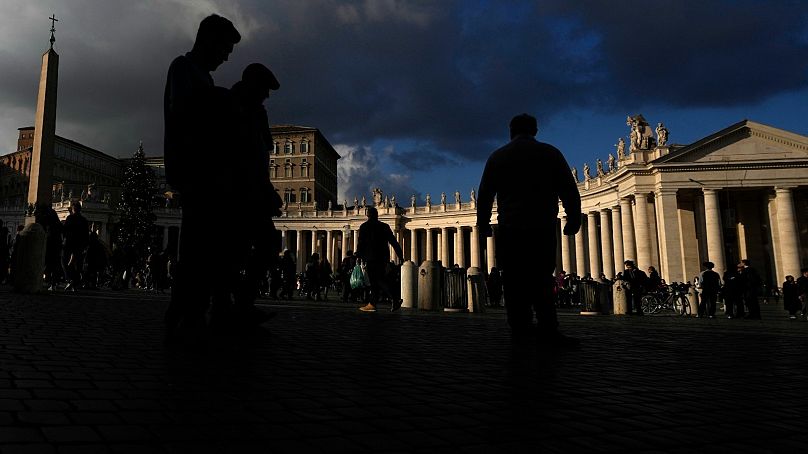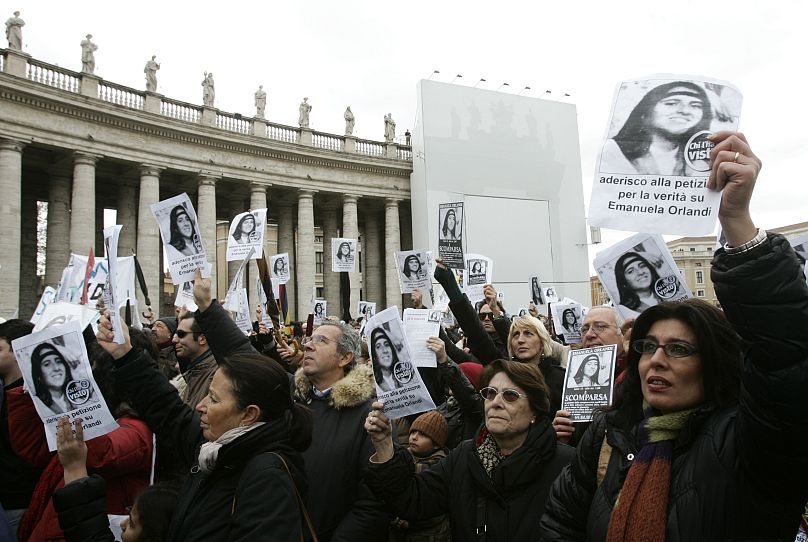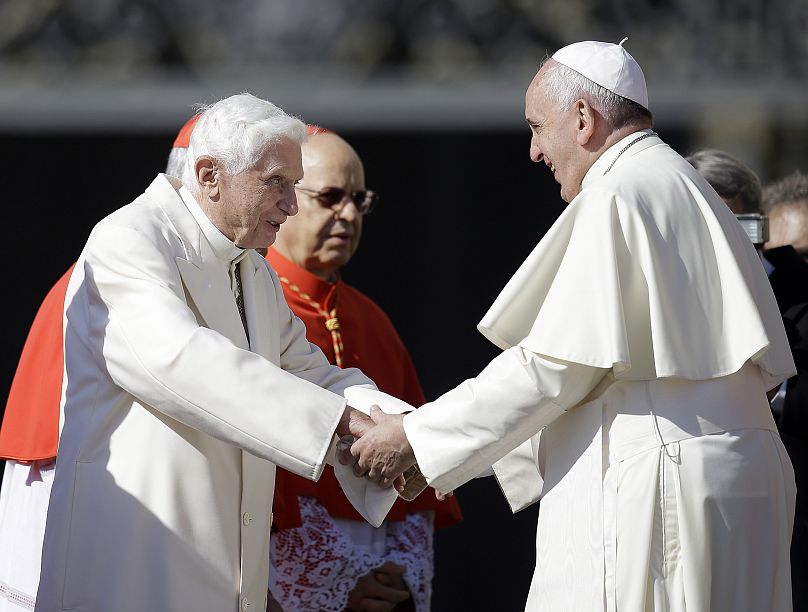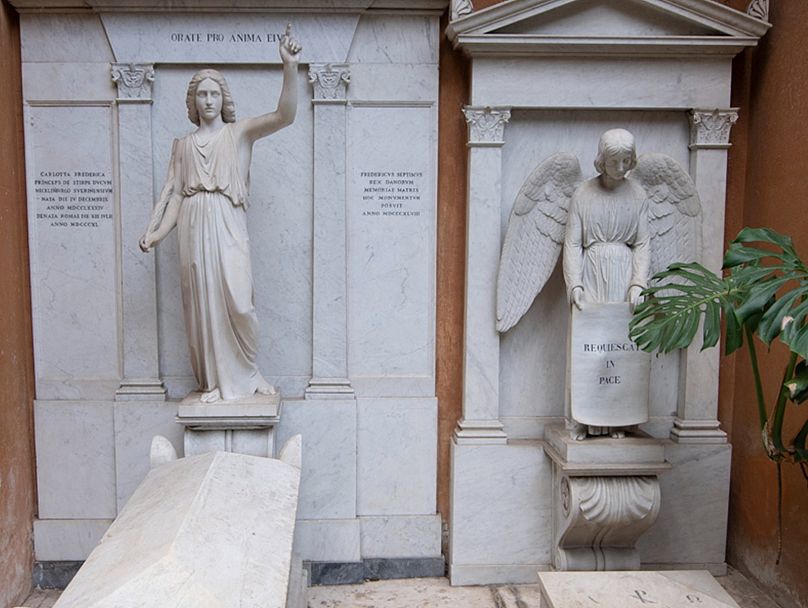The mysterious disappearance of Emanuela Orlandi has haunted the Vatican for four decades, now the investigation will reopen after a Netflix documentary and the death of Pope Benedict.
Pope Francis has ordered an investigation reopened into the mysterious disappearance of Emanuela Orlandi, a 15-year-old Vatican citizen who vanished from the streets of Rome in 1983.
It comes only months after a hit Netflix documentary put the case in the global spotlight, and just weeks following her family's calls for the Italian parliament to take up the cause.
"There are people in the Vatican who know everything," her brother Pietro told Italian media this week.
"Some scenarios have deliberately never been explored, I hope this case will finally mean more collaboration between Vatican and Italian authorities".
Who was Emanuela Orlandi and what happened?
Emanuela was the daughter of a Vatican lay employee, and her case is one of the most complex enigmas in the Holy See's recent history.
In June 1983 she was supposed to return home after a flute lesson at a music school in Rome, but never made it.
Her disappearance has been linked to many other church scandals: from clergy sexual abuse to the Mafia; from Rome’s criminal underworld to the attempted assassination of Pope John Paul II -- all of which have muddied the waters for investigators, leading to many dead ends and red herrings.
Italian investigative journalist Tommaso Nelli has studied the details of this case closely over the last decade.
In his book, Atto di Dolore ("Act of Grief"), he reveals that a few days before she went missing, Emanuela told a friend she had been sexually harassed in the Vatican gardens by a high-ranking cleric.
"This episode left Emanuela deeply shaken", Nelli told Euronews.
"We must not get sucked up into the big conspiracy theories. They all proved baseless so far. We should start from the victim, looking at her social circles and the world she lived in".
Nelli says authorities ignored other relevant leads, including a "dark car", which wasn't owned by her family, and that would pick up Emanuela from school in the months before her disappearance -- a period where she skipped class for 71 hours, said Nelli, speaking about the testimonies he gathered.
"Who was driving that car? Who was the clergyman who harassed Emanuela? If we answer these question we can learn a lot about what happened to Emanuela, if not everything."
Why has the Vatican decided to re-open the investigation?
"The timing is extremely singular", says Nelli. "Less than ten days after Ratzinger's death, we have this new inquest".
"You look closer at what's happening in the Vatican right now, and you see that as soon as Benedict XVI passed away, the conflict between his supporters and those of Pope Francis flared up again".
"This investigation can be read as a statement by Francis. After all, the Vatican is a theocratic absolute monarchy. The one who decides is the Pope".
"With this decision, Francis distances himself from his predecessors. He's the first Pope to allow an internal investigation into this Vatican citizen's disappearance. Something Ratzinger e Wojtila (John Paul II) never did".
"So his pontificate will go down in history as a more transparent and open one, at least on paper".
Royal tombs, leaked documents and cryptic witnesses
Over the last four decades, Italian authorities have launched several investigations into Emanuela's disappearance, but never came to any concrete conclusions.
The last inquest was closed in 2015. It lasted nine years, but led to no convictions or further developments.
Over the years, many alleged witnesses came forward, some of them even claiming to have personally kidnapped or transferred Emanuela across Rome and into nearby areas. None of those claims could be confirmed.
In 2017, Italian reporter Emiliano Fittipaldi published an alleged leaked Vatican document that listed a series of expenses the Holy See might have sustained between 1983 and 1997 to hide and transfer Emanuela to various locations, including two hostels for women in London.
The authenticity of the document could not be proved, and the Vatican dismissed it as "false and ridiculous".
In 2019, following an anonymous note sent to the Orlandi family's lawyer, the Vatican allowed the opening of two royal tombs dating back to the 19th-century looking for Emanuela's body, but nothing was found -- not even the remains of the Danish and Albanian princesses which were supposed to be inside.
In December 2022, a cross-party proposal in the Italian parliament called for a new investigative commission into Orlandi's disappearance, as well as two other cases of missing and murdered girls.
Opposition lawmaker Carlo Calenda supported the initiative: "The Vatican knows way more than what it says, and a sovereign state, like the one where Emanuela's kidnapping took place, need to raise its voice, without passively accepting the Holy See's version."
